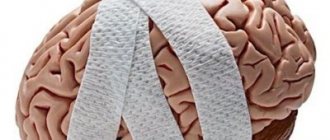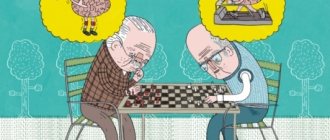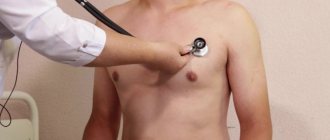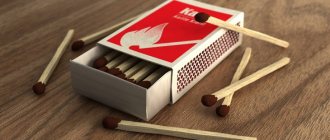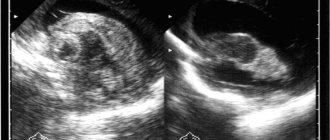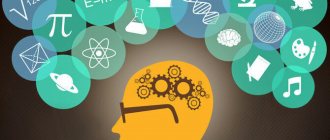Memory loss is a common complaint in both older and younger people. If such a complaint appears, it is important to consult a doctor as soon as possible to identify the causes and mechanisms of memory impairment. Identifying and eliminating the disease at the initial stages will allow you to avoid more severe disorders such as amnesia, encephalopathy, dementia, etc.
Objective memory loss and complaints of memory loss do not always accompany each other. Memory loss is the main cause of complaints about lapses. But, about 20% of such complaints are observed in those who do not have objective impairments in memory function. Why? The fact is that such a complaint can be observed with normal memory function in the following cases:
- Attention disturbance. With increased anxiety, asthenic syndrome, depression.
- Overwork due to lack of sleep, malnutrition, prolonged stress and overexertion.
- Large volume of processed information.
- Poisoning with alcohol or drugs.
Memory loss that occurs for the first time always attracts attention and causes anxiety. I forgot my keys and documents at home; made an appointment and forgot about it; I can’t remember individual episodes from yesterday - here is just a small list of complaints about poor memory.
What to do if an elderly person loses memory
One of the common problems of older people is increased forgetfulness. This pathology occurs in 10–15% of people over the age of 65 and entails partial or complete loss of acquired skills, as well as absent-minded attention. This condition should not be underestimated, since Alzheimer’s disease is often behind memory loss.
At the first signs of memory loss, timely diagnosis and treatment are required to help restore brain activity. Examination of a person with memory loss includes:
- biochemical and general blood and urine tests;
- Doppler ultrasound;
- EEG is a research method that allows you to determine even the slightest changes in the function of the cerebral cortex;
- CT – layer-by-layer examination of the brain without contrast enhancement;
- TCD is a scan of brain vessels that allows you to detect pathologies in the early stages of development.
After diagnosis, the doctor prescribes medications aimed at improving brain activity.
Important! Memory loss is a condition that requires the help of a qualified specialist, since self-medication entails irreversible consequences.
Methods for diagnosing and treating memory loss
Statistics confirm that every year there are more and more elderly people suffering from impaired cognitive functions of the brain and weakening of memory. Unfortunately, scientists have not yet discovered an effective treatment for this disease, as well as for Alzheimer's disease. The manifestation and progression of forgetfulness in older people sharply worsens their quality of life.
Of course, doctors first try to find out what triggers memory loss in older people. If there is information about the state of the patient’s body at the moment, accompanying diseases and phenomena that may have provoked a negative impact on the general mood, then treating the root cause can help restore brain activity.
First of all, the doctor sends the patient for laboratory tests, which will indicate problems with the nervous system, which directly affects the state of memory. The list of main tests to clarify the pathology includes: biochemical blood test, electroencephalogram, cerebrospinal fluid examination, toxicological testing, blood vessel analysis, brain examination.
The treatment method is determined by the factors that caused disturbances in brain function. Memory loss in older people always occurs after some form of stress or trauma. If the cause is damage to the skull, the doctor will prescribe medications that improve metabolic processes in nerve cells. Usually these are drugs such as: nootropics, absorbent and diuretic drugs. Amnesia due to senile dementia is treated with neurotropic medications.
To determine amnesia at any stage of development, the following methods are used:
- general blood analysis;
- Ultrasound Dopplerography of the head vessels
- DSM - duplex scanning of cerebral vessels;
- EEG - electroencephalography;
- CT - computed tomography of the brain;
- biochemical analysis of cerebrospinal fluid;
- toxicology test.
Memory loss in older people may indicate an emerging neurological or mental disorder. If the problem has manifested itself, it is recommended to consult a neurologist or psychiatrist.
To determine a program for further treatment of the patient, the specialist needs to determine the cause of the disorder. Amnesia always develops as a continuation of some negative shock. These are not necessarily psychological experiences; traumatic brain injury can also negatively affect an elderly person’s ability to remember events.
Memory disorders can be assessed and treated. Medicines are selected depending on the main ailment. For example, if a patient already has diabetes mellitus, atherosclerosis, or high blood pressure, then the body’s condition is first stabilized according to the symptoms of these diseases.
Memory loss in older adults is treated using several categories of medications:
- nootropics, which are prescribed for loss of cognitive functions due to overexertion or traumatic brain injury;
- anticholinesterase drugs are used for amnesia;
- Memantines serve to combat amnesia, which develops in parallel with Alzheimer's disease.
To restore optimal brain activity, the following drugs are used:
1. Bilobil increases the absorption of oxygen and glucose by nervous tissues, improves blood circulation in the control departments. Doctors prescribe this medication three times a day, one capsule. Treatment lasts at least two to three months.
2. Donepezil prevents the development of senile dementia, improves thinking and information processing, and allows you to restore the activity of a person of advanced age. The medicine is taken before bed in the amount of one tablet. Treatment of memory loss in older people is recommended for at least one and a half months.
3. Memantine has a positive effect on concentration and memory improvement. The drug improves the patient’s general mood and relieves depressive thoughts. Experts prescribe the medicine with meals, half a tablet (5 ml) per day, gradually increasing the dose to 1-2 tablets (10-20 ml).
We recommend
“Features of older people: psychological and physiological” More details
4. Undevit improves metabolism and the functioning of nerve tissue. Take the drug according to the instructions - 3 times a day, 2 capsules.
5. Nootropil has a beneficial effect on attention and memory, metabolism in nerve cells. Take one or two capsules (800–1600 ml) during the day.
Disruption of normal brain function causes deterioration in the functioning of the entire body, so it is recommended to take restorative preparations. For example, traditional medicines are suitable:
- For memory loss in older people, you can include infusions of medicinal herbs in your daily diet:
-Walnut leaves (50 grams) are poured with hot water (1 liter). Cover the container with a towel and leave for several hours. Take the decoction three times a day, 150 ml. Positive reviews of the infusion of nut leaves confirm its good effect on memory.
-Eleutherococcus roots (40 grams) are placed in a container and filled with water (600 ml). Next you need to boil the infusion for 10 minutes. To restore memory, you should drink the infusion 150 ml four times a day.
- Thyme (1 tablespoon) is poured into a glass jar and carefully poured with boiling water. The broth is left covered for fifteen minutes. Thyme can be taken instead of tea three times a day, one cup. The experience of many older people confirms that amnesia develops more slowly, and memory becomes much better.
- Atherosclerosis causes blockage of blood vessels, so you need to take medications with blood-thinning properties:
-Dill seeds. Place one tablespoon of dill seeds in a saucepan and add half a liter of hot water. The broth is infused for half an hour. Take half a glass before meals three times a day.
-Potato broth. Five potatoes are peeled, the peelings are placed in water and boiled for 20 minutes. The strained decoction is taken three times a day, half a glass.
- If the cause of memory loss in older people is a head injury:
-Peel the walnuts, divide them into small pieces and pour honey over them. Take the mixture three times a day, one tablespoon. The approximate duration of treatment is one and a half months.
-Freshly squeezed potato juice. You can regain the ability to fix important information in your head by taking 150 ml of potato juice twice a day for 14 days.
We recommend
“Service for the elderly: forms, types and features” Read more
Main types of memory disorders in old age
Memory disorder in older people is divided into several types:
According to the volume of forgotten information:
- selective amnesia;
- global amnesia.
According to the rate of memory loss:
- sudden;
- gradual.
According to the ratio of events of the present to the past:
- retrograde;
- anterograde.
By amount of time elapsed:
- long-term memory;
- short-term memory.
In addition, older adults may experience visual memory loss. In this state, a person does not recognize people he previously knew, including those closest to him.
Symptoms of memory loss
Memory disorder is a gradual and long-term process, so it is quite difficult to notice any changes at the initial stage. The following symptoms are typical for this condition:
- frequent headaches caused by brain injuries;
- dizziness associated with dysfunction of the vestibular apparatus;
- tremor that worsens even with a minor stressful situation;
- impaired coordination of movements;
- absent-minded attention, inability to evaluate events or situations;
- chronic fatigue caused by past diseases (infectious, viral);
- apathy, depression;
- confusion - decreased concentration;
- speech disorders – inability to express thoughts, find the right words, speech dysfunction.
If memory loss is accompanied by these symptoms, the elderly person needs care, as the risk of getting lost on the street increases.
In teenagers
In adolescence, problems arise for various reasons. In 50% of cases, they are caused by lifestyle: addiction to alcohol, taking illegal substances, smoking, drug addiction, substance abuse and other addictions. All of them interfere with blood circulation and damage brain analyzers.
Another 20% is due to hormonal imbalance due to puberty. Neuroactive sex steroids (estradiol is recognized as the most active of them) directly affect the memory process, as they act on the frontal lobes of the brain.
In approximately 15% of cases, memory impairment in adolescents is dictated by psycho-emotional instability and stress, when social maladjustment and problems in interpersonal relationships result in a depressive state.
In other cases, the causes of problems are traumatic brain injuries and other factors from the general list.
Short-term memory loss
One of the reasons for memory deterioration is the deterioration of the central nervous system (CNS). The process of renewal and formation of nerve cells is affected by slow metabolism, which often leads to short-term memory loss. In addition, sudden memory loss can be caused by other physiological and psychological reasons.
Physiological reasons:
- excessive mental stress;
- chronic malaise associated with the presence of various diseases;
- bruises, blows to the head;
- psychoneurological pathologies;
- cerebrovascular accident;
- Alzheimer's and Parkinson's disease;
- prolonged intoxication of the body;
- lack of physical activity;
- slow metabolism;
- lack of adequate regular nutrition;
- infectious diseases in active form.
Psychological reasons:
- depression;
- prolonged nervous tension;
- lack of proper rest, resulting in overexcitement;
- prolonged loneliness, lack of communication with loved ones.
Often the cause of memory impairment in old age is due to previous diseases (stroke, ischemia and their complications) and alcohol addiction.
Lack of medical attention for short-term memory loss can lead to brain dysfunction, so such patients need to be examined by a specialist.
Consequences
If the situation is neglected, the following consequences may occur:
- developing dementia;
- transition of amnesia from short-term to stable (more and more fragments from the past will be forgotten and for a longer period);
- frequently recurring short-term memory loss reduces the quality of life and negatively affects a person’s psycho-emotional state;
- pathological changes in cerebral circulation;
- worries and panic in such situations disrupt the functioning of many organs.
Short-term memory loss seems harmless only at first glance. If it passes so quickly, this does not mean that it has no effect on the body. Take such situations more seriously and promptly seek help from specialized specialists for competent treatment.
What causes memory impairments, how do they manifest themselves and how to get rid of them? About this in our article at the link.
Treatment
Memory loss is rarely due to just one cause. As a rule, brain dysfunction is a consequence of a malfunction in the functioning of the entire body. Therefore, treatment includes not only taking medications, but also various health measures:
- annual medical examination;
- regular blood pressure monitoring;
- refusal of excessive alcohol consumption, smoking;
- balanced diet;
- taking vitamin and mineral complexes;
- sleep at least 7 hours a night.
- development of intelligence (solving crossword puzzles, learning foreign languages, reading, etc.);
- regular physical activity (physical activity).
If memory impairment progresses, it is recommended:
- diversify your leisure time with drawing or singing lessons;
- activate brain activity (discuss with an elderly person his biography, life events, etc.);
- record events in a diary;
- discuss watching a movie, an event, a book read;
- take daily walks.
For a person with memory loss, it is very important to regularly maintain mental activity. Systematic physical activity, interesting leisure and communication will reduce the symptoms of memory impairment and have a beneficial effect on the general condition of an elderly person.
Medicines to improve memory
To treat memory loss, the doctor prescribes antipsychotic drugs that actively affect the functioning of the brain. Groups of antipsychotic drugs suppress excessive emotional state, mental activity and other manifestations of psychosis, without disturbing the patient’s consciousness. In addition to antipsychotics, older people are prescribed antidepressants based on mianserin and fluoxetine. For insomnia, sleeping pills are indicated to help restore strength spent while awake.
The most effective medications for treating memory loss are:
- “Actovegin”, “Gliatilin”, “Piracetam” - drugs improve the interaction of the cerebral cortex and the nervous system, prevent the destruction of brain neurons;
- "Tripental" - improves blood circulation in the brain;
- “Glycine” – activates cognitive functions.
In case of relapse, the herbal drug "Tanakan" is prescribed on an ongoing basis.
Important! Medicines for the treatment of memory in old age have side effects, so patients with indications for drug therapy should be under the supervision of a doctor.
Memory disorders
Frequent complaints of memory impairment
- It's easy to get lost in thought
- Memory problems
- Difficulty making decisions
- Feeling that something is stopping you from doing something
- Difficulty concentrating
- Feeling guilty that you yourself are largely to blame
- Headache
- Attacks of vegetative-vascular dystonia
- Panic attacks
- Poor appetite
- Sleep disorders - insomnia, nightmares
- The need to check or double check
- The need or need to do everything slowly to avoid mistakes
Complaints about memory problems in most cases are not related to severe mental disorders. Most often, people complain that their memory has begun to deteriorate or their memory has become poor.
Treatment of memory impairment
Treatment of conditions associated with memory problems is selected individually by a competent psychotherapist after a full pathopsychological examination.
As a rule, for memory impairment, the doctor selects complex therapy, which should include both neurometabolic therapy and a special form of psychotherapy. It is possible that special hypnotherapy techniques can be used, which is determined by the doctor as necessary.
Paradox: patients with mental disorders in which memory is impaired rarely complain about it, and the more severe the memory impairment, the less critical the patient is to it. For example, with Korsakoff's syndrome, when the ability to remember current events is completely lost, the patient has no criticism of the condition, and, despite obvious memory disorders (he does not remember what today's date is, what happened a minute ago, how he got here), it is impossible to convince him that his memory is impaired.
Examples of memory complaints
Woman with memory problems
The patient is a woman, 32 years old, resident of a big city. He has no bad habits and leads a healthy lifestyle. There is a lot of psychophysical stress at work and at home. I contacted a psychotherapist with the following complaints:
“Three years ago I was examined by a neurologist about decreased memory and concentration. A diagnosis of chronic CVN in the VVB of complex origin was made (hypoplasia of the left VA + vertebrogenic), cephalgic sm, vestibulo-ataxic sm, subcompensation. Tension headache. The course of treatment was completed immediately after the examination with Cavinton, Actovigin, Milgamma, nicotinic acid, Sirdalud, Grandaxin. The treatment did not help. There were minor improvements. Currently, I really complain about memory loss, I work as an accountant, but I can’t remember a couple of numbers. General condition – lethargy, fatigue, difficulty falling asleep, presence of obsessive thoughts.”
An asthenic disorder was established. She completed an outpatient course of intensive complex therapy under the guidance of a psychiatrist and psychotherapist (psychotherapist) for two months. She was under the supervision of a psychotherapist for a year. The result is a complete restoration of working capacity, the social sphere does not suffer. He has no complaints about his health.
Memory problems in a man
Patient, 23 years old, male, resident of a big city. Smokes (1/3 pack of cigarettes per day). Consumes alcohol in moderation. Didn't take drugs. I consulted a psychotherapist with a referral from a neurologist.
“Several years ago, when I was at school, I suddenly began to develop: an almost constant feeling of fatigue, constant drowsiness (sometimes almost irresistible during the day), a feeling of the unreality of what is happening (as if drunk), memory deterioration, decreased intelligence, difficulty maintaining attention (sometimes in store, I look at the abundance of goods in the store and see just a “heap”, I can’t single out any individual item), dulling of emotions. Moreover, the condition varies greatly throughout the day and from day to day. I endured it for many years, began to exercise, began to adhere to a sleep schedule, but it did not get better. Somehow I graduated from school, I somehow study at the institute, now I live the life of an amoeba: all day long at the computer or TV. More than a year and a half ago, I went to the clinic to see a therapist.
Trying to solve memory problems
First I passed simple tests - the norm. The heart condition is normal. The fundus is also normal. The neurologist prescribed - Three months of Magne B6, Piracetam, Tenoten, Anaprilin (propranolol). There was no effect. I visited the neurologist again. They sent me for an EEG, it showed some horrors. They prescribed Ginos and Cerepro. And electrophoresis with Eufillin on the collar area, probably due to cervical osteochondrosis. There were no results from the pills, but according to the REG indications, we were sent for an ultrasound scan of the vessels of the brain and neck. An ultrasound scan showed that everything was normal. MRI – normal. EEG – normal. Then I saw a neurologist, but a different one. I prescribed a course of Phenotropil and Negrustin tablets for 2 months. It didn’t help with this problem, but “Negrustin” temporarily reduced the anxiety that had been there since childhood. But after a month it started to come back, I had to take more pills. The therapist referred me for Gastroscopy, ultrasound of the abdominal cavity, and blood biochemistry. Everything is fine. I saw a neurologist again, and again went to another one. Just in case, I told him about another problem of mine: since childhood, in my sleep, in the morning, I begin to make a loud monotonous sound. The doctor said that it was sleep-speaking, and it was not scary. After looking at the results of EEG, MRI, REG, ultrasound, he concluded that I have VSD.
The result of attempts to solve a memory problem
He prescribed an expensive course of medications for 3 months: Pantogam, Semax, Trittico, Ginseng Tincture. All together it comes out to more than 4 thousand, I have already spent a lot of money on diagnostics and pills, and now it is very difficult for me to find such an amount. Besides, this didn't help either. I plucked up my courage and visited a psychologist. The psychologist conducted some intelligence tests and wrote in the conclusion that everything was fine with me. After this, there is no desire there. I went again, again to another neurologist, who referred me for a consultation with a psychotherapist. My main complaints have always been memory problems.”
The examination revealed the presence of astheno-depressive syndrome against the background of mild organic changes in the brain. He completed an outpatient course of intensive complex therapy under the guidance of a psychotherapist for four months. She is under the supervision of a psychotherapist for six months. The result is a complete restoration of working capacity, the social sphere does not suffer. Complaints about the state of health remain insignificant in the form of minor anxiety and a slight decrease in mood. He continues treatment at home under the supervision of a psychotherapist.
Hypomnesia - memory problem
The most common memory disorder is memory loss (hypomnesia). Hypomnesia makes it difficult to recall memories of the recent or distant past.
The decline in memory with age-related changes in the brain occurs according to the so-called Ribot's law: first, recent events are forgotten, while old ones are remembered well. Memory decreases in vascular diseases of the brain (hypertension and hypotension, vascular atherosclerosis, etc.), atrophic diseases (Alzheimer's disease, Pick's disease), after traumatic brain injury, alcoholism and drug addiction, and many other diseases.
Decreased memory in mentally healthy people is often a manifestation of the so-called transient inhibition reflex. This is the body’s protective reaction to physical or mental overload due to fatigue, illness, or long-term stress. That is, memory loss is not always a sign of illness.
Less commonly observed is the opposite disorder – hypermnesia (enhanced memory). It can be observed in mentally healthy people when excited or in an elevated mood. Hypermnesia is a common symptom of manic states in bipolar affective disorder, schizophrenia and other endogenous diseases.
Amnesia is a memory problem
Another type of memory disorder is amnesia – memory gaps. Amnesia indicates gross disturbances in the functioning of the brain. Amnesia is observed in unconscious states, with traumatic brain injuries, with alcoholism and drug addiction. Anterograde amnesia is loss of memory for the period after a traumatic event (for example, after a concussion, the patient does not remember events that occurred immediately after the injury itself).
Retrograde amnesia is a loss of memory of events preceding a traumatic event (the patient does not remember the events that preceded the injury).
Complaints of memory impairment are often associated with decreased attention. A person’s attention can deteriorate under many conditions: overwork, any illness accompanied by an increase in temperature, during the recovery period after infections, poisoning.
For a psychotherapist faced with complaints of memory impairment, an objective assessment of the state of memory is important. The simplest objective test of memory is the ten-word test, in which the subject is asked to listen to ten words, then asked to repeat them, after which he is distracted for five minutes and again asked to reproduce these words. More complex memory testing techniques are used in pathopsychological examinations.
What else helps improve memory in old age?
Herbal preparations that have no contraindications will help improve concentration and memory:
- "Omega-3";
- "Ginkgo biloba";
- "Vitrum Memory";
- "Bilobil";
- "Aminalon";
- vitamins C, B, E, folic acid.
The daily diet of an elderly person with signs of amnesia should include a large amount of vegetables and fruits. The following foods improve brain activity:
- walnuts, seeds;
- low fat dairy products:
- dark chocolate (cocoa bean content not less than 65%);
- chopped horseradish root;
- seaweed;
- broccoli.
Drug therapy and proper nutrition, combined with regular stimulation of brain activity, will help improve the memory of an elderly person.
Memory training exercises
Participants in the innovation project developed “Vikium”, a memory training machine specifically for older people. A program with special exercises and games is selected for each person according to his medical indications. The entire learning process and progress statistics are recorded by a computer program.
This technique allows older people to maintain brain activity and develop logical thinking and memory. It is no less useful to load your brain by reading special books that train your memory. This will improve cognitive function for a long period.
Memory loss in older people is a problem that requires complex treatment and regular monitoring by specialists. Only in this case can a positive result be achieved.
